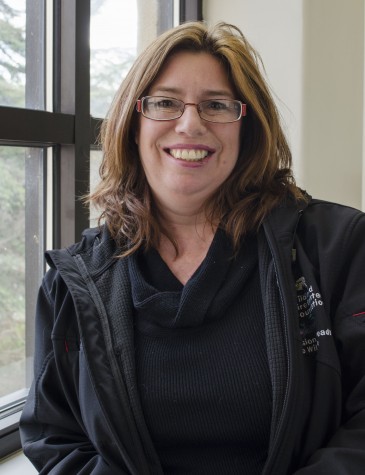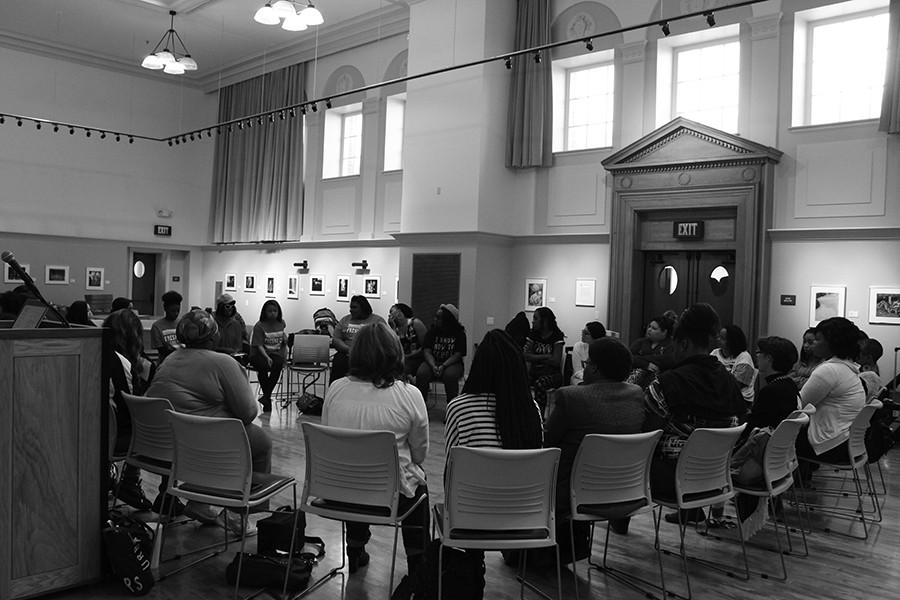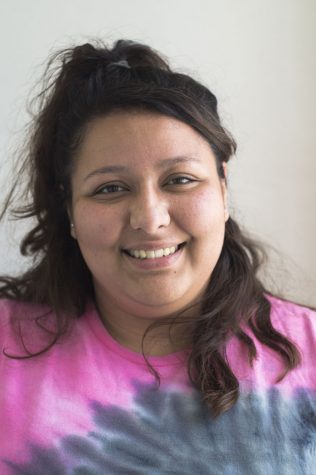‘Rites of Passage’ Provides African-American Students Transition to Adulthood
Photo by: Destinee Lopez
The students enrolled in SYMBAA and IDILE programs discussed their challenges on and off campus and how to overcome them, during the annual Rites of Passage ceremony in OAB 251 on Feb. 16
Sponsored by the Black Faculty and Staff Association, the Rites of Passage ceremony mimics an African tradition during which young men and women transition into adulthood and become productive members of their community.
For the students at Fresno City College, it was much more; it was about honoring their ancestors and their sacrifices as well as about developing a valuable understanding of their African roots.
“There is a structure that we have to restore in our own communities because our own communities are in disarray,” said Kehinde Solwazi, the founder of the African American studies program who firmly believes in bringing this culturally historical ritual to the students. “There are five point of passage in everyone’s life, birth, adolescence, young adult, true adult and ancestor or death.”
The Feb. 16 ceremony at the college symbolizes the students’ passage from one stage of life to a more responsible stage — from adolescence to young adult and taking on more responsibilities. The transition from high school to college requires students to embrace self sufficiency.
The students who participated in the rites of passage are in the IDILE and SYMBAA programs which provide African American students a close-knit supportive groups that help them achieve their college educational goals successfully.
IDILE is an academic based community-mentoring program for African American students. Program participants take basic English, math, and African American studies courses together. The goal is to help students transfer into four-year colleges. IDILE students say they feel that this program is invaluable.
“I would be lost without IDILE,” Jordann Johnson, an IDILE student, said. “I love my IDILE sisters.”
SYMBAA, Strengthening Young Men by Academic Achievement, focuses on the needs of African American male students. The program builds on basic reading and writing skills academically and offers counseling, career planning, campus tours, and transfer assistance.
Students benefit from opportunities to help each other, and peer mentors influence one another.
IDILE and SYMBAA students facilitated the rite of passage event, introduced speakers and helped with other organization. Karla Kirk, instructor of African American studies, explained the significance of symbols used in the ritual. Fire is the element that helps people stay focused and on track, burning away any undesirable things. Water represents peace and togetherness, bringing focus, harmony and reconciliation. A rock is symbolic of minerals which represent memory and helps people communicate and listen.
Professor Kirk led students through libations to honor their ancestors before the rites of passage ceremony could begin.
Mentors Kehinde Solwazi and Tate Hill, president and CEO of the Fresno Black Chamber of Commerce in Fresno, told students about the importance of being connected as a community.
Participants underestimated the number of African American businesses in the Fresno area. When asked, students estimated that there were only 20 to 100 businesses, and the crowd cheered when Tate Hill told them, “there are 3,000 black owned business in Fresno, Madera, and Clovis areas.”
Hill said he was grateful for the multitude of African American role models that helped establish his successful mindset.
“Part of my rite of passage is remembering the legacy and the investment that so many other people made into my life,” Hill said.
During the final segment of the ceremony known as the Porch, participants were split into two groups –males and females — and encouraged to share their experiences and offer words of encouragement to members of their group.
When students met again a few days later as part of their IDILE and SYMBAA programs, “Students felt they were able to understand that we are all going through some of the same things,” said Karla Kirk.
Keantae Carter, a peer mentor for SYMBAA, recalls the impact a mentor had on him. “My favorite part is when my mentor Trevor brought us out of our shells like a hermit crab and taught us to work together, to touch another, and be able to have a real conversation,” he said.
Lena Stevenson, SYMBAA peer mentor, said the program turned her life around. She went from being homeless with nothing to a thriving mother and student at FCC, her outlook completely reversed.
“I have a place. I have a car,” she said. “I have my kids.“
Carter and Stevenson clearly support each other and their peers. Why? Because, they said, “We are SYMBAA Siblings.”



